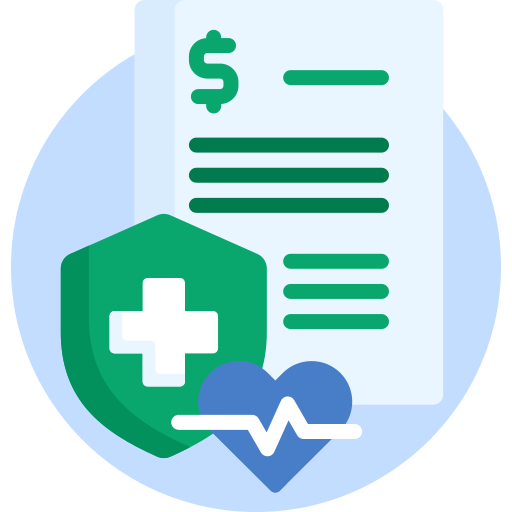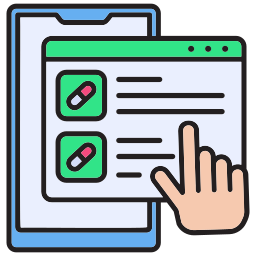Healthcare delivery is evolving, and patient care is improving thanks to technologies like EHR. These technologies have significantly improved health outcomes through cost reduction, enhanced public health, and decision-making facilitation.
The electronic exchange of patient data between multiple EHR systems utilized by different healthcare providers is called healthcare interoperability. Since the 2016 Cures Act, the importance of ensuring real interoperability has increased.
President Obama signed legislation mandating that EHR systems include APIs for easy data interchange. This aims to improve patient care and operational efficiency in the healthcare industry by facilitating the exchange of crucial health information.
Current State of Interoperability in Healthcare
The growth of electronic data and healthcare IT systems has been rapid, but they have primarily developed in isolated regions of the country. The initial surge in healthcare interoperability began with billing and claims and then progressed to ancillary clinical systems, administrative services, and EHR systems.
Many healthcare systems and clinical practices have established IT systems independently, primarily as automation entities. Communication is a crucial technological issue in the healthcare community. As new software systems are launched to improve patient outcomes and operational efficiencies, the need for interoperability in healthcare systems will continue to grow.
Major Interoperability Challenges in Healthcare

Navigating healthcare interoperability involves addressing data silos, diverse standards, and regulatory complexities. Seamless data exchange is essential for improving patient care and operational efficiency. Below, we'll delve into the key challenges in achieving this goal.
❗Numerous Software Systems with Varying Data Standards
Healthcare providers often use a wide array of software systems, each with its data standards and protocols. This diversity makes it difficult to achieve seamless data exchange between systems. For example, one hospital may use a specific EHR system, while another uses a different one, each with unique data formats and requirements.
This lack of standardization complicates the interoperability in healthcare, leading to data silos and communication breakdowns. The resulting inconsistencies can affect patient care, as critical information might not be accurately or promptly shared. Standardizing data formats and promoting interoperability protocols are essential steps to overcoming this challenge.
❗Limited Skills and Resources
A significant challenge to achieving interoperability in healthcare is the need for more skilled professionals and resources. Many healthcare organizations need help finding and retaining staff with the expertise required to implement and manage interoperable systems. Additionally, limited financial resources can hamper the adoption of advanced technologies necessary for seamless data exchange.
Smaller healthcare providers, in particular, may need help to invest in new infrastructure or training programs. This skill and resource gap can lead to inconsistent implementation, reduced efficiency, and increased vulnerability to errors. Addressing this issue requires targeted investments in workforce development and financial support to ensure all healthcare providers can achieve interoperability.
❗APIs in Facilitating Data Exchange
Interoperability in healthcare hinges on APIs, which are important for exchanging patient data across systems. APIs facilitate seamless integration between EHRs and other healthcare applications, ensuring accurate and swift data transfer across platforms.
This integration enhances care coordination, reduces errors, and boosts overall healthcare efficiency. However, even with these advantages, problems like data security, standards, and integration difficulties exist. Effective API implementation is essential to overcome these barriers and achieve true interoperability in healthcare.
❗Outdated Legacy Systems
Outdated legacy systems pose significant challenges to healthcare interoperability. Many healthcare organizations still rely on older software that needs modern integration capabilities. Legacy systems often use outdated data formats and need more flexibility to communicate with newer systems.
Upgrading or replacing these systems is a complex and costly process, involving potential disruptions to operations and extensive staff training. Additionally, integrating legacy systems with new technology requires custom solutions and can lead to compatibility issues.
❗Validating Electronic Requests for Patient Information
Validating electronic requests for patient information is a critical aspect of interoperability in healthcare. Ensuring the authenticity and accuracy of requests is essential to protecting patient privacy and complying with regulatory requirements such as HIPAA.
Healthcare providers must implement robust authentication mechanisms to verify the identity of requesters and secure communication channels to prevent unauthorized access. Further, validating requests entails authenticating the validity of the asking organization and ensuring that the sought information is consistent with patient consent and regulatory norms. Overcoming these challenges is important for maintaining data integrity and fostering trust in electronic health information exchange.
❗Overcoming Organizational Resistance to Sharing Data
Overcoming organizational resistance to sharing data is crucial for advancing healthcare interoperability. It addresses data security, privacy, and competitive advantages among healthcare organizations. Implementing clear policies and governance frameworks that prioritize patient privacy and compliance with regulatory standards like HIPAA can help build trust.
Additionally, promoting the benefits of data sharing, such as improved care coordination and enhanced patient outcomes, encourages collaboration. Leveraging technology solutions that ensure secure data transmission and interoperability standards can further facilitate organizational acceptance of data-sharing practices, fostering a unified approach to healthcare delivery.
❗Making Data Readily Available is Now a Requirement
Ensuring data availability has become a mandatory requirement in healthcare, driven by regulatory mandates and the need for seamless patient care coordination. Healthcare providers must overcome several challenges to meet this demand, including integrating disparate systems, ensuring data security and privacy, and complying with evolving standards like the 21st Century Cures Act.
By adopting interoperable solutions and leveraging advanced APIs, healthcare organizations can streamline data access across platforms while enhancing patient outcomes through timely and accurate information exchange. Such a proactive strategy satisfies regulatory requirements and promotes efficient healthcare delivery and higher patient satisfaction.
❗Diverse Systems and Standards
Healthcare providers use various EHR systems and data formats, leading to significant compatibility issues. Each system may have its proprietary standards and protocols, making it challenging to share and interpret data across different platforms. This lack of uniformity can hinder effective communication and data exchange between healthcare providers, impacting the continuity and quality of patient care.
❗Data Quality and Consistency
Variability in data entry practices across healthcare providers can lead to inconsistencies and inaccuracies in patient records. Different clinicians may record information in different ways, causing discrepancies that affect the quality of care. Inconsistent data can lead to misdiagnosis, treatment errors, and a lack of comprehensive patient insights, ultimately compromising patient safety and outcomes.
❗Financial and Technical Barriers
Implementing and maintaining interoperable systems can be both costly and technically challenging, particularly for smaller healthcare providers with limited resources. The investment required for new technology, staff training, and ongoing support can be prohibitive. Additionally, the technical expertise needed to integrate and manage these systems may be beyond the capabilities of smaller organizations, further exacerbating the challenge.
❗Lack of Standardization
Despite efforts to establish universal standards like HL7 and FHIR, full adoption and integration across all healthcare systems remain incomplete. Many healthcare organizations still operate using legacy systems that are not compatible with these standards. The lack of widespread standardization hinders the seamless exchange of healthcare data, making it difficult to achieve true interoperability and maximize the potential benefits of health information technology.
Solutions for Interoperability Challenges
💡Adoption of Standard Protocols
Healthcare providers can adopt standard protocols like HL7 and FHIR to ensure compatibility between different EHR systems. Using these standardized protocols allows for consistent data formatting and communication, making it easier to exchange information across various platforms. This adoption facilitates smoother integration and improves the quality and continuity of patient care by ensuring all systems speak the same language.
💡Investment in Interoperable Technology
Investing in interoperable technology solutions can help overcome technical barriers. These technologies are designed to work with multiple EHR systems, enabling seamless data exchange. By prioritizing interoperable solutions, healthcare providers can enhance data-sharing capabilities, reduce compatibility issues, and improve overall efficiency. This approach is particularly beneficial for smaller providers who might struggle with the technical challenges of integration.
💡Training and Education
Providing comprehensive training and education for healthcare staff on the importance of interoperability and the proper use of EHR systems can significantly improve data quality and consistency. When staff are well-versed in standardized data entry practices and understand the significance of accurate record-keeping, it reduces variability and enhances the reliability of patient information. This focus on education ensures better care outcomes.
💡Applying Cloud-based Solutions
Cloud-based solutions greatly improve interoperability in healthcare by providing scalable storage and computing resources. It promotes better care coordination and patient outcomes by facilitating the effective administration and interchange of enormous amounts of patient data among healthcare practitioners. Cloud-based technologies make real-time data access and platform integration easier by cloud-based technologies.
Additionally, cloud systems offer advanced analytics and artificial intelligence applications, which improve decision-making processes. Encryption and compliance with healthcare legislation are examples of security technologies that help secure sensitive data.
Given these benefits, issues like data transmission, integration with existing systems, and ensuring continuous availability must be addressed to use cloud-based solutions in healthcare effectively.
💡Emerging Technologies like Blockchain
Blockchain technology offers a promising solution for enhancing interoperability in healthcare through its secure, transparent, and decentralized approach to data exchange. It ensures data integrity and privacy by creating immutable records accessible only to authorized parties. It encourages cooperation, reduces data silos, and makes it easier for healthcare professionals to share data effectively.
By leveraging blockchain, patient records can be easily traced and verified, minimizing errors and fraud. Smart contracts on the blockchain automate healthcare processes, enhancing operational efficiency. However, scalability, regulatory compliance, and integration with existing systems must be addressed for widespread adoption.
Benefits of Interoperability in Healthcare: Enhancing Patient Care Standards

✅ Decline in Medical Mistakes
Interoperability in healthcare significantly reduces medical errors. When systems can seamlessly exchange patient data, healthcare providers gain a comprehensive view of a patient's medical history, medications, and treatments. It minimizes the risk of prescribing conflicting medications or overlooking critical information, leading to safer and more accurate care delivery.
Active data exchange ensures healthcare teams have timely access to the most up-to-date patient information, enabling informed decision-making and enhancing patient safety standards.
✅ Improvement of Patient Experience and Security
Healthcare interoperability improves patient security and experience. Interoperability guarantees that patient information is easily available to authorized providers, enhancing continuity of treatment by facilitating smooth data flow between healthcare systems.
With this simplified access to medical information, wait times are shortened, diagnostic times are accelerated, and overall service delivery is improved.
Additionally, interoperability improves data security by guaranteeing that private patient data is transferred safely and with authorized individuals only, protecting patient confidentiality and privacy across the healthcare continuum.
✅ Enhancement of Patient Security
Interoperability in healthcare strengthens patient security. It guarantees that only authorized workers may access critical patient data by facilitating secure data flow across systems.
As a result, there is less chance of illegal access and data breaches. Additionally, interoperability minimizes mistakes that might jeopardize patient safety by guaranteeing that patient data is correct and current.
Interoperability improves the general security of healthcare information systems by protecting patient privacy and confidentiality through safe, standardized communication methods.
✅ Introduction of National Networks
Healthcare interoperability improves patient security and experience. Interoperability guarantees that patient information is easily available to authorized providers, enhancing continuity of treatment by facilitating smooth data flow between healthcare systems.
With this simplified access to medical information, wait times are shortened, diagnostic times are accelerated, and overall service delivery is improved.
Additionally, interoperability improves data security by guaranteeing that private patient data is transferred safely and with authorized individuals, protecting patient confidentiality and privacy across the healthcare continuum.
✅ Decrease in Burnout Among Physicians
Interoperability in healthcare can help reduce physician burnout. It helps healthcare professionals by lessening the administrative load by simplifying the sharing of patient data. It enables doctors to devote more time to patient care than administrative tasks.
Full patient data is easier to access, which improves clinical judgment and lessens the need for unnecessary testing and treatments. With enhanced workflows and more effective data management, medical professionals might feel less stressed and have higher levels of job satisfaction. This leads to improved patient outcomes and better healthcare delivery as a whole.
✅ Improved Data Analysis
Data analysis in healthcare is enhanced by interoperability. Interoperability allows for the smooth transfer of patient data between various systems, giving a more complete picture of the patient's health. This allows medical professionals to see patterns, trends, and insights they may have missed otherwise.
Improved data analysis enables more precise diagnosis and customized treatment regimens. It also helps with population health management by identifying at-risk populations and forecasting epidemics.
Better data analysis empowers healthcare companies to make well-informed decisions that enhance patient outcomes and streamline treatment delivery.
Related Read - Benefits of Interoperable Healthcare Data for Providers
Successful Case Studies in Healthcare Interoperability
Interoperability in healthcare can benefit large organizations, like Mindbowser, which helped healthcare businesses reduce their work.
Streamlining Care for Pregnant Patients
Our team developed a comprehensive solution that optimizes care for 300,000 pregnant patients monthly across 2,500 hospitals and 30,000 obstetric providers. This solution leverages integrated workflow and EMR-integrated billing tools to streamline processes and ensure efficient patient management.
The system's interoperability features enable seamless data exchange between various healthcare providers, which enhances the overall patient care experience and significantly improves operational efficiency.
Our technology enables real-time access to patient data, tackles major issues in prenatal and obstetric care, and enables medical professionals to act quickly and decisively.
The integrated billing tools streamline patient care, reducing administrative burdens and allowing providers to focus on quality healthcare. Through seamless data exchange, they also ensure accurate patient records, minimize errors, and improve care coordination among providers.
These case studies demonstrate the tangible benefits of interoperability in healthcare, showcasing how integrated systems can streamline processes, improve patient outcomes, and support providers and patients.
How HealthConnect CoPilot Can Help You with Interoperability Challenges
Addressing the interoperability challenge in healthcare is crucial for enhancing patient care and operational efficiency. Overcoming data silos, varying standards, and regulatory hurdles enables seamless data exchange among providers. This integration fosters better clinical decision-making, reduces errors, and improves patient outcomes and healthcare delivery.
HealthConnect CoPilot specializes in building healthcare interoperability solutions tailored to your needs. Our team integrates advanced technologies to ensure seamless data exchange, improve clinical workflows, and enhance patient care. We focus on secure, compliant systems that streamline operations and support efficient, data-driven decision-making across healthcare networks.
- What is the challenge of interoperability?
Interoperability in healthcare refers to the ability of different information technology systems and software applications to communicate, exchange data, and use the information that has been exchanged. The challenge lies in ensuring seamless data sharing among disparate systems with different data formats and standards.
- What is the meaning of interoperability in healthcare?
Interoperability in healthcare means the capability of various healthcare information systems and software applications to exchange, interpret, and utilize data seamlessly. It enables healthcare providers to access and share patient information across different platforms, improving care coordination and patient outcomes.
- What is interoperability in healthcare?
Interoperability in healthcare refers to the ability of healthcare information systems to work together within and across organizational boundaries to advance the effective delivery of healthcare for individuals and communities.
- Why is interoperability important in healthcare?
Interoperability is crucial in healthcare as it facilitates the seamless exchange of patient information between healthcare providers, enhances care coordination, reduces medical errors, and improves patient outcomes. It also supports decision-making processes and operational efficiency across the healthcare ecosystem.

Pravin Uttarwar, CTO of Mindbowser
As the CTO of Mindbowser, a healthcare-focused software development company, I am dedicated to delivering cutting-edge digital solutions that transform patient care and operational efficiency. With over 16 years of experience and as an MIT alumnus, I specialize in healthcare interoperability, FHIR-compliant systems, and AI-powered platforms, crafting scalable products and architectures tailored to the unique needs of healthcare providers and enterprises.
I have spearheaded the development of over 100 products and platforms, guiding them from concept to full-fledged solutions. My expertise extends to scaling remote tech teams, driving EHR integrations, and building secure, cloud-native healthcare solutions. By shaping technology visions and roadmaps, I help clients achieve long-term growth and success in the rapidly evolving healthcare landscape.
HealthConnect CoPilot enabled us to access real-time patient health data through integration with Apple HealthKit, enhancing care delivery while maintaining HIPAA compliance. This led to personalized care and improved outcomes for patients.

AI-enhanced Obstetrics Clinical Decision Support Platform
HealthConnect CoPilot's integration with Epic's Hyperspace has transformed our workflow. Automated post-delivery examinations and HL7 protocol use ensure accurate updates to Epic. Their expertise empowers informed decision-making in childbirth

Top Provider for Customized Healthcare Solutions
HealthConnect CoPilot's helped us to integrate with leading tracking devices such as Apple Watches and Fitbit. This integration enables effortless syncing of health data, providing users with real-time insights displayed directly on our flagship products: smart mirrors and digital calendars.

A Provider of Customizable Display Solutions
Post a comment Cancel reply
Related Posts
Navigating the Future of Healthcare Integration with SMART on FHIR Apps
SMART on FHIR enables apps to plug directly into EHR systems like Epic EHR, Cerner…
TEFCA in Healthcare: A Complete Guide
Healthcare has long struggled with fragmented data systems. Patient records are often locked within isolated…
Model Context Protocol (MCP): Revolutionizing Healthcare Chatbots with FHIR Integration
Healthcare technology is experiencing a paradigm shift with the emergence of Anthropic’s Model Context Protocol…
Healthcare Integration: The Understanding & Its Impact in Healthcare
Healthcare integration refers to connecting various systems, applications, and data sources within the healthcare ecosystem…
Value-based Care vs Fee-for-Service
Healthcare payment systems can feel a bit like deciding between paying for each item on…
Checklist for EHR Integration in the Healthcare System
EHR integration in the healthcare system refers to the seamless connection of EHR systems with…









